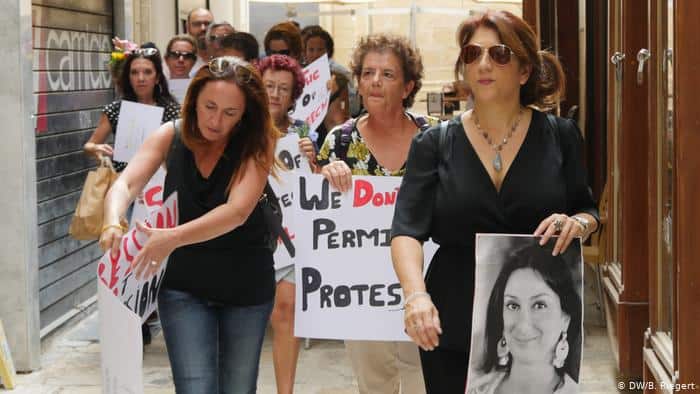
Today’s court decision denying Pia Zammit’s libel suit against it-Torċa appears to be predicated on the idea that taking an acting role in ‘Allo! ‘Allo! is controversial for being flippant about the holocaust or Nazism.
This is a blindingly misguided reading of the play. No one should be able to emerge from watching ‘Allo! ‘Allo! and think anyone that has anything to do with the performance feels anything remotely like ambivalence about the Nazis, let alone sympathy with them. When the magistrate branded Pia Zammit’s choice (11 years ago) of playing a French Resistance partisan pretending to be a Nazi as “controversial” or that the fact that she then protested against injustice here in Malta was somehow an ironic fact in the context of that choice is a very problematic conclusion.
Park for a moment the question whether what it-Torċa said about Pia Zammit amounted to libel. Let us for now examine the observations by Magistrate Rachel Montebello about the facts. She agrees with the Torċa editor that acting in ‘Allo! ‘Allo! was a ‘controversial’ matter. How can the court form that view? Does she think that plays that mock the Nazis should not be made (because there’s the risk that someone at it-Torċa might find that choice objectionable)?
What is a court doing putting its nose into what plays can or cannot, should or should not be made; and which of them are controversial for a civil society activist to act in?
Because this is what was not really examined here. Why did it-Torċa report, 11 years after the fact, that Pia Zammit played in her younger days a character that sewed mock swastikas on her trench coat? Was it because that decision in and of itself was controversial? I don’t think so. If so it would have made the front page when the play was on (and it-Torċa reviewed it) and they’d have been laughed out of the room because most people – even readers of it-Torċa – know that ‘Allo! ‘Allo! is in no way sympathetic to Nazism.
They reported it now because Pia Zammit was protesting in the street against the government it-Torċa works for. And they wanted to make her look bad. They wanted to embarrass her.
The court in its decision today argued that Pia Zammit had not managed to prove the reporting of it-Torċa had seriously harmed her. But I think today’s decision shows that indeed it has. Because even a magistrate in a courtroom presiding over a debate on fundamental questions of free expression, activism or art, accepted and bought wholesale the malicious misrepresentation that it-Torċa intended: that it was somehow controversial, ironic or inconsistent for Pia Zammit to both have acted in ‘Allo! ‘Allo! and to have protested against our own breed of blood-stained tyrants.
If even Rachel Montebello took it-Torċa’s bait why should the magistrate not expect the general population to think that Pia Zammit was somehow at some point in the wrong? There’s the serious harm caused to her. Whether it was because Pia Zammit exercised her right to free artistic expression or her right to free political expression, today’s court decision demands from Pia Zammit that she regrets either one. Or both.
We can’t live with that because it takes away from us just too much. And for what? To protect the government from its critics? Because that’s what happened here.
It is right that libel laws set a high standard for people in public life seeking damages from journalists writing about them. But in spite of appearances roles, in this case, have been reversed. Pia Zammit is a public person because the acting profession is not exactly a dim activity. But that’s not what got her plastered on it-Torċa. She was plastered on it-Torċa because she had the temerity to do more with her citizenship than sell it, and to protest in the street when a journalist she admired was killed with the connivance, if not the active participation of people at the highest level of political power.
So the one needing protection here is Pia Zammit, not the people in the highest level of political power. Those people own or control it-Torċa and they used it to try to get Pia Zammit to shut up. The law that protects free expression has been perverted to be used to protect the suppression of free expression.
I understand. Magistrate Rachel Montebello has the facts and the law and that’s all she can use when she takes her decisions. As a point of fact, the editor of it-Torċa says he is a journalist and Pia Zammit is as public as they come. But that’s not what is happening here and once again we see the legal and judicial infrastructure of this country stacked in favour of the powerful, overwhelming those who dare object.